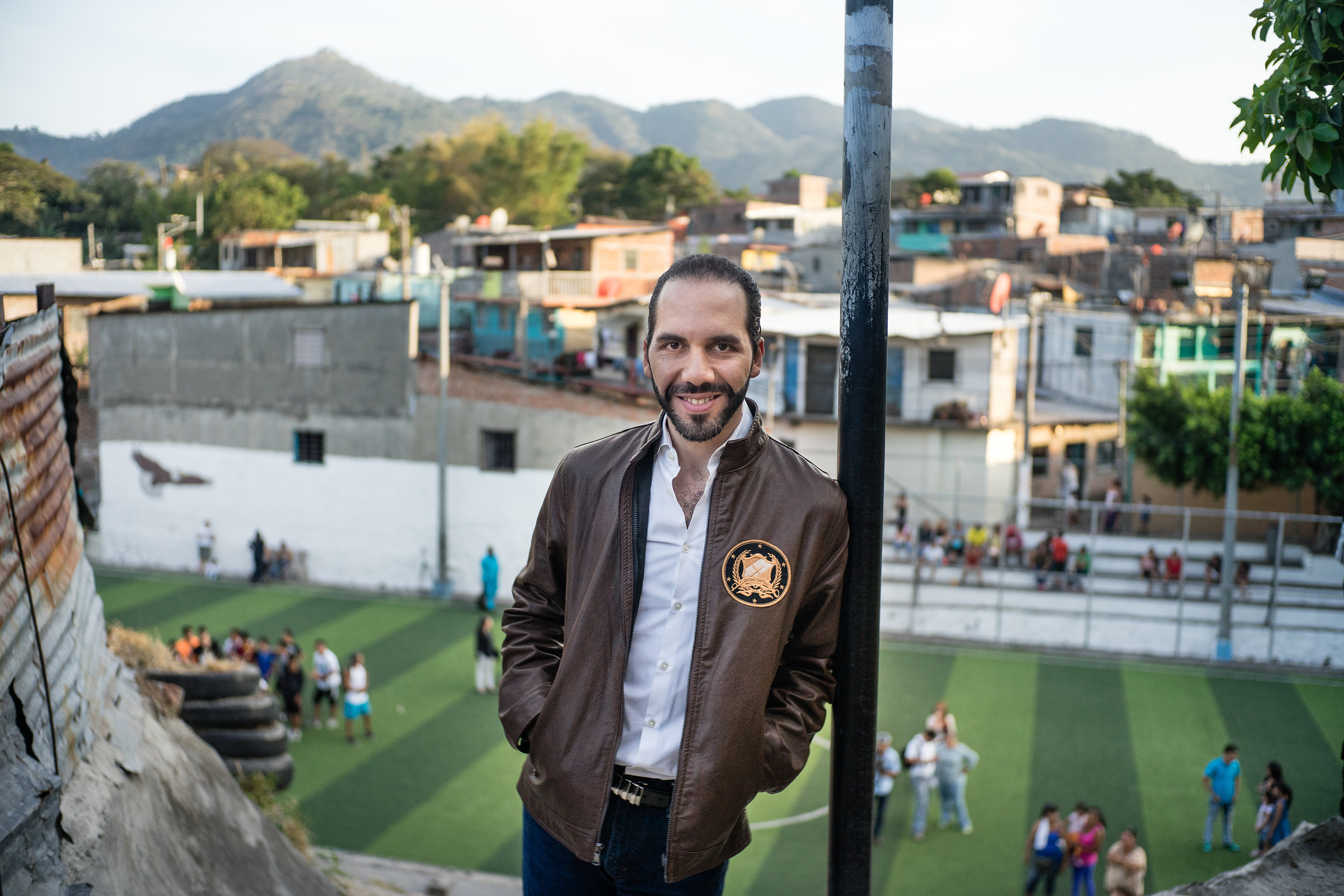In the tumbledown Iberia barrio of this Central American capital, Mayor Nayib Bukele stands in the goalmouth of a renovated soccer pitch defending penalty kicks from a line of kids. Most are approaching their teenage years, an age when many local youths join feared street gangs, known here as Maras. But Bukele is encouraging them to shoot balls instead of bullets.
“We’re trying to challenge the gangs, not by repression, but by competing to get the young people to our side,” says Bukele, 35. “We are not talking about sociopaths here. We are talking about social issues.”
In 2015, when Bukele came to power, San Salvador had become one of the most murderous cities on the planet. That year it suffered 514 homicides in an area with 260,000 people, making it 11 times more lethal per capita than Chicago. Many Salvadorans, including the President Salvador Sanchez Ceren, favored a heavy-handed strategy using soldiers and SWAT teams against the Maras, who they blamed for the murder epidemic.
But Bukele is a onetime businessman from the president’s same leftist party of former guerillas. But he takes a radically different position, saying the repression is like an aspirin — it tackles only the symptoms, and not the cause. Instead, he’s treating the epidemic of violence with social work and the construction of new sports grounds, libraries, parks, marketplaces, plazas and community centers. He has also embraced the counterculture of the barrio youths, supporting skateboarding, breakdancing and aerosol art as well as their beloved soccer.

Using both taxpayer funds and donations from sponsors such as the Spanish soccer league, Bukele believes that transforming the public spaces can transform the mindsets of young people, turning them from criminality to creativity.
The city’s murder rate did drop 16% in his first year. But it is hard to know if this was caused by the mayor’s social work or the president’s policing, and with 432 homicides the rate is still high. The number of murders nationally has also gone down, and even so El Salvador remains one the most violent countries on the planet.
Still, Bukele’s development has won him high approval ratings both from his own leftists and conservatives, and he plans to press on with the program, which he says will bear fruit in the long term. “If we have the vision to be a first world city where people don’t kill themselves, a city where there is no exclusion,” Bukele says, “then things will start to change.”
- Cybersecurity Experts Are Sounding the Alarm on DOGE
- Meet the 2025 Women of the Year
- The Harsh Truth About Disability Inclusion
- Why Do More Young Adults Have Cancer?
- Colman Domingo Leads With Radical Love
- How to Get Better at Doing Things Alone
- Michelle Zauner Stares Down the Darkness




